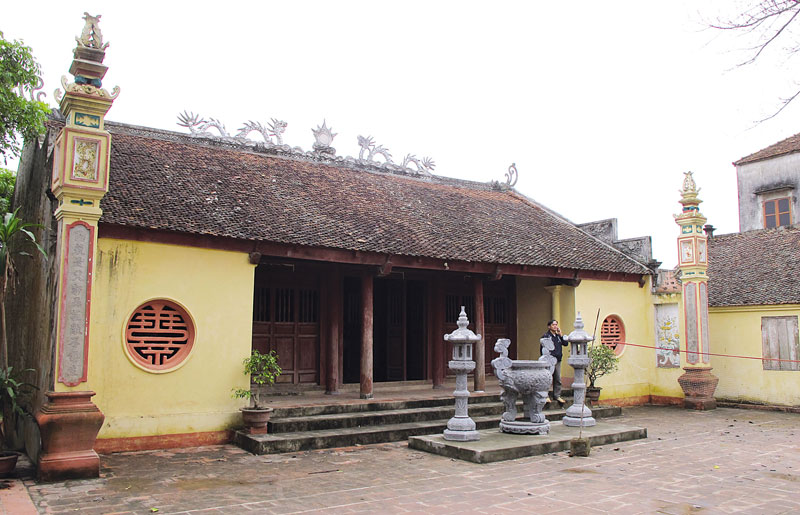Typical historical - cultural celebrity of Bac Ninh people in Nguyen Dynasty (XIX - XX centuries) (part 2)

3. Nguyen Dang So (1745 - 1840)
Nguyen Dang So was born in the year of Giap Tuat (1745). He is the grandson of Nguyen Dang Giai, hometown of Huong Trien village, now in Nhan Thang commune, Gia Binh district, Bac Ninh province.
So came from aristocratic lineage in the Le Trinh dynasty, originally from Nguyet Vien village (Hoang Hoa, Thanh Hoa), his ancestors came to reside in Huong Trien in the early 18th century.
Being intelligent and studious, at the age of 24, Nguyen Dang So passed Huong Cong, at the age of 34, he passed the Nhi Giap Doctorate (i.e. Hoang Giap) in the Dinh Mui exam (1787). After passing the Hoang Giap, Nguyen Dang So was appointed mandarin for three successive dynasties: Le - Trinh dynasties, Tay Son dynasties and Nguyen dynasties. He used to hold the following positions: Academy of Sciences, title of Huong Linh Ba (Le - Trinh dynasties); Back to the Ministry of Thi Lang, the title of Gia Dinh was made, and he was appointed to the Academy of Effects, and he was elevated to the title of Huong Ly Hou (Tay Son Dynasty). Nguyen Dang So was once sent to the Qing dynasty and held the position of Quoc Tu Giam under the Nguyen dynasty (Minh Mang).
At the age of 74, Nguyen Dang So retired and returned to his hometown to open a school to teach. Many of his students have become talented people in many fields.
The life and career of Nguyen Dang So has demonstrated the qualities of a contemporary Confucian scholar. Moreover, he also made important ideological and cultural contributions in the activities of "Bich au thien vien" and other valuable ideological review works such as "Truc lam tong chi nguyen thanh", "Long nhu tich do"…
4. Nguyen Cao (1828 – 1887)
Nguyen Cao was born in Cach Bi village, Cach Bi commune, Que Vo district, Bac Ninh province.
Nguyen Cao is the third son of Nguyen Hanh district and his mother is Mrs. Nguyen Thi Dieu, a beautiful and gentle woman of the Nguyen Duc family, famous for martial arts in the Le - Trinh dynasties.
Nguyen Cao soon lost both his parents. He was raised and led by his grandfather, sister and brother-in-law. In the year of Dinh Mao (1867), Nguyen Cao passed the Bachelor's exam.
In 1873, when the French colonialists invaded Tonkin, Nguyen Cao gathered insurgent soldiers, rebelled against the French, liberated a large area in Bac Ninh region.
In 1882, the French colonialists invaded Bac Ky (Tonkin) for the second time, Nguyen Cao continued to gather forces to rebel against the French, causing them many heavy losses. On March 27, 1887, Nguyen Cao was captured by the French in Kim Giang (Hanoi), then they tried to bribe and seduce him, but he resolutely refused. Finally, he died to maintain the temperament of a patriotic scholar.
Nguyen Cao is not only a famous person representing the temperament of Bac Ha scholar and heroic and courageous qualities of Bac Ninh - Kinh Bac people, he is also a poet with many typical works.
Currently, in the homeland of Cach Bi, people have built a temple to Nguyen Cao to express the gratitude of the famous Nguyen Cao. This work of worship has been ranked and granted the National Historical and Cultural Relic by the state since 1994.






